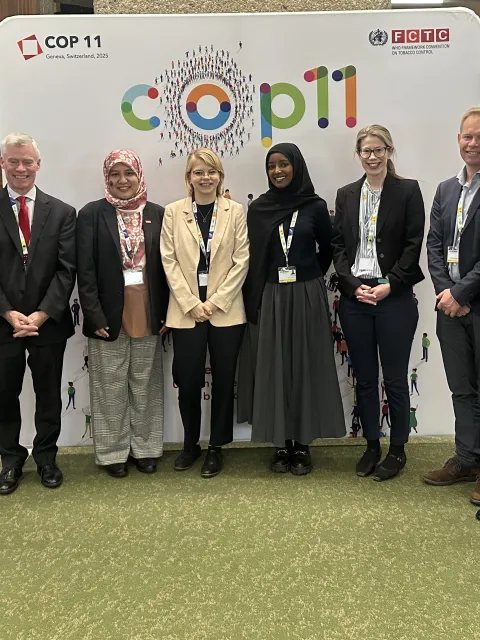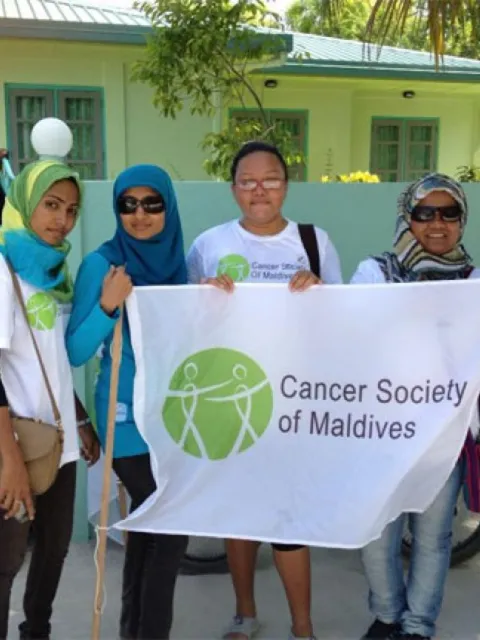Philip Morris-funded foundation changes name but maintains pro-tobacco agenda
The Foundation for a Smoke-Free World, has been recently renamed Global Action to End Smoking (GAES). This rebranding is misleading, masking the organisation’s ties to the tobacco industry, as it continues to receive substantial funding from Philip Morris International, and promotes alternative nicotine products.

HIGHLIGHTS
- The Foundation for a Smoke-Free World has rebranded as Global Action to End Smoking (GAES), yet remains financially dependent on Philip Morris International (PMI), undermining claims that it is committed to public health.
- GAES promotes e-cigarettes and heated tobacco as 'reduced-risk', countering WHO’s warnings about their health risks and addictiveness.
- Recent filings show GAES spent more on PR than on research, prioritising public image over scientific independence.
- PMI’s history of opposing smoking restrictions raises questions about its commitment to reducing nicotine dependence globally.
The Foundation for a Smoke-Free World, funded exclusively by Philip Morris International (PMI), rebranded as Global Action to End Smoking (GAES) in May 2024.
UICC has previously warned that the Foundation for a Smoke-Free World, originally launched in 2017, was entirely dependent on PMI’s funding, receiving a USD 1 billion endowment over 12 years.
The rebranding to ‘Global Action to End Smoking’ is presented as part of a broader effort by the tobacco industry to rehabilitate its public image. Yet, the organisation has not changed its fundamental mission or financial dependence on PMI.
However, on its website, the organisation presents e-cigarettes, heated tobacco products (HTPs), and nicotine pouches as “reduced-risk products”, while the World Health Organization (WHO) cautions that such products pose significant health dangers and can undermine efforts to reduce overall nicotine addiction. WHO has emphasised that HTPs are still classified as tobacco products, and their promotion can mislead the public about their safety.
This comes as tobacco companies face declining sales of traditional cigarettes in many markets and look to expand their presence in the growing market for alternative nicotine products.
This rebranding from FSFW to GAES is an example of the tobacco industry’s well-established strategy of using misleading marketing tactics and selective science to influence public opinion.
Recent tax filings show that GAES allocated USD 6.46 million to research grants, while spending USD 7.59 million on communication and promotional activities. This suggests that GAES prioritises shaping the public narrative over contributing to genuinely independent scientific research.
“The new name does not change the fact that Global Action to End Smoking is a tobacco industry-funded entity. This is simply an effort aimed at making the organisation appear more independent and health-focused, while the agenda remains the same: whitewash the PMI’s image and serve as a front group. The tobacco industry’s tactics – whether through name changes or claims of supporting harm reduction – should be recognised as part of a strategy to keep consumers dependent on nicotine, rather than a genuine effort to improve public health.”
– Yannick Romero, Senior Manager, Knowledge, Advocacy and Policy, UICC
The rebranding comes at a time when PMI is attempting to position itself as a partner in global health efforts. PMI has stated that it aims to phase out combustible cigarettes over the next decade and a half, but it continues to take actions that might indicate the contrary, such as open new factories in low- and middle-income countries.
PMI also has a history of opposing sensible legislation to reduce smoking (opposing plain packaging laws in Australia, challenging tobacco advertising bans in Panama, contesting large health warnings on cigarette packs in Uruguay), and targeting low- and middle-income countries where 80% of the world’s smokers live.
Essentially, evidence shows that PMI is not so much transforming, as seeking to retain a sizeable cigarette business, while introducing a second business arm (HTPs) that is a driver of significant extra revenue.
“The foundation’s rebranding is just the latest move in a long history of efforts by the tobacco industry to present itself as a responsible actor, while continuing to promote addictive products. Public health policy must remain independent of industry influence to ensure that the interests of consumers are prioritised over those of tobacco companies."
– Cary Adams, CEO, UICC
Meaningful progress in reducing tobacco use in fact requires adhering to evidence-based strategies, like those outlined in the WHO’s Framework Convention on Tobacco Control (FCTC), rather than promoting products backed by the tobacco industry.
As GAES seeks to expand its influence, UICC urges its members, health organisations, media outlets, event organisers, and governments to remain cautious of engaging with any entities funded by the tobacco industry.
Last update
Thursday 07 November 2024
